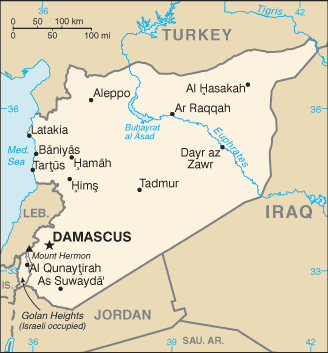The nations making up the “Friends of Syria” group meeting in Tunisia are expected to call for the United Nations to send “peacekeeping” forces if and when the Assad regime agrees to a cease-fire.
 The United States, European and Arab nations, almost 70 in all, are preparing to demand that Syrian President Bashar Assad agree to an immediate cease-fire and allow humanitarian aid into certain areas, or face unspecified punitive action which could include additional sanctions or direct support to the opposition forces.
The United States, European and Arab nations, almost 70 in all, are preparing to demand that Syrian President Bashar Assad agree to an immediate cease-fire and allow humanitarian aid into certain areas, or face unspecified punitive action which could include additional sanctions or direct support to the opposition forces.
The UN peacekeeping force, which UN Secretary General Ban Ki-Moon would recruit, is supposed to be billed as a “nonmilitary” operation, which seems highly unlikely given the war zone that certain areas of Syria have become. Assad is unlikely to agree to a ceasefire, but assuming he did, the plan calls for the UN to send forces with the permission of the ruling authority in Syria, whether it is Assad or a successor.
The other aspect of the plan is to directly intervene on the side of Syria’s opposition fighters. “We will also intensify our links with the opposition,” said British Foreign Secretary William Hague. “We will treat them and recognize them as a legitimate representative of the Syrian people.” Hague also said he was meeting with the opposition umbrella group, the Syrian National Council.
As the conference began on Friday, several hundred pro-Assad demonstrators protested outside the hotel, only to be driven away by police after 15 minutes. They carried signs criticizing Secretary of State Hillary Clinton and President Barack Obama.
The meeting in Tunis was basically an effort to get around the established legal means of international intervention, which was blocked by Russia and China at the UN Security Council. Still, any kind of military intervention is likely to have terrible effects that would escalate the violence.
There are various options for intervention being considered, but U.S. officials have increasingly hinted at sending direct military support to Syria’s fragmented, violent, unreliable opposition. As Clinton said on Thursday, “There will be increasingly capable opposition forces,” she said. “They will, from somewhere, somehow, find the means to defend themselves as well as begin offensive measures.”


